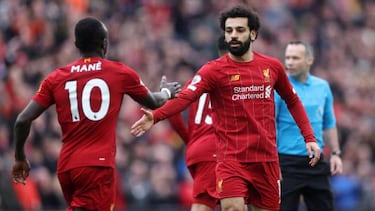Coronavirus: Fixture backlog leaves Euro 2020 in grave doubt
Without enough free dates to play the remaining fixtures in the club season, it seems unlikely that the Euros will begin in mid-June as planned.


After brief attempts to continue with the jam-packed European football schedule behind close doors, the coronavirus outbreak has now seen play suspended in all of the major European leagues. UEFA have announced that both the Champions League and Europa League’s fixtures for next week have also been postponed.
When the football stops
A continent-wide pause such as this is unprecedented since the Second World War, but in the 1962/63 season Britain faced similar fixture chaos. Known as the ‘Big Freeze’, the winter of 1962 was one of the coldest in living memory with snow on the ground until late March in some areas. The FA faced a logistical nightmare to complete the season.
The FA Cup third round took 66 days to complete, with a tie between Lincoln City and Coventry City postponed 15 times. Coventry’s cup run that year, combined with a backlog of league fixtures, saw them forced to play a mammoth 25 games in 79 days, including seven in a two-week period.
The authorities were forced to extend the season to hastily complete all fixtures and the FA Cup final was rescheduled to the end of May, three weeks later than it had been the previous year.
What's next for the 2019/20 season?
Football has changed a lot in the 57 years since that chaotic season, but finishing the league campaign is still the number-one priority. While the Premier League title race is all but wrapped up, there is still plenty to play for with unfancied Leicester City and Sheffield United in the hunt for European places.
Relegation from and promotion to the Premier League is also still undecided and carries enormous financial implications for the clubs involved. Fans of Leeds United, for example, would not take too kindly to a cancellation.

With this in mind, English football’s governing bodies have confirmed that the remaining fixtures will be completed once the health risk to those involved has subsided. In an official statement, The FA said: “All parties are committed at this time to trying to complete this season’s domestic fixture programme and are liaising to establish appropriate options to do so.”
Football’s congested continental calendar
The desire to finish the domestic season makes perfect sense, but as we approach the business end of a packed fixture list for elite clubs, it could not have come at a worse time. Liverpool have little more to do as they stroll over the Premier League finish line but for Manchester City, there is still plenty of work to be done.
City are still in the Champions League and FA Cup, and are the favourites to progress past Real Madrid and Newcastle United in those competitions. If they do reach the next round in both they will have at least 14 matches to play before the Premier League season’s scheduled final game on 17 May, 42 days after their next fixture on the 5 April. That would leave them playing one game every three days, for six weeks.
Related stories
There is also the potential for additional Champions League and FA Cup games too, and reports have surfaced that UEFA are considering a switch to one-legged ties for the remainder of their competition. To complicate things further, the final in Istanbul is scheduled for 30 May, just two weeks before the European Championships’ opening game on 12 June.
Without enough free dates to play the remaining domestic fixtures it seems unlikely that the tournament will begin in mid-June as initially planned. UEFA have scheduled a meeting for next Tuesday in which they will discuss the future of Euro 2020, but it seems unlikely that it will be unaffected by coronavirus.